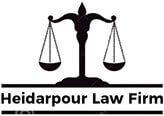Understanding the National Do Not Call Registry

In an increasingly digital age, the persistent intrusion of unwanted telemarketing calls has become a pervasive annoyance for many. What begins as an unwelcome interruption can escalate into genuine harassment, disrupting daily life and causing significant distress. Understanding what constitutes telemarketer harassment, the protections offered by the National Do Not Call Registry, and the crucial role a lawyer can play in stopping these unwanted calls is essential for reclaiming your peace and privacy.
The Annoying to the Abusive: Defining Telemarketer Harassment
While a single unwanted call might be irritating, repeated and aggressive telemarketing can cross the line into harassment. Several factors can contribute to this designation. Frequency of calls is a key element; receiving multiple calls in a short period, especially after explicitly requesting to be removed from their call list, can be considered harassment. The timing of calls also matters. Calls outside of permitted hours (typically 8:00 a.m. to 9:00 p.m. local time) are often indicative of disregard for consumer preferences.
The content and nature of the calls can also be harassing. This includes abusive or threatening language, persistent calling after a clear refusal to engage, and misrepresentation of the products or services being offered. Calls from companies using spoofed or fake caller ID information to disguise their identity are also a deceptive and potentially harassing tactic. Furthermore, the use of robocalls – automated calls delivering pre-recorded messages – can be particularly intrusive, especially when made without prior express consent. When these unwanted calls become relentless and disrespectful of your boundaries, they can constitute actionable harassment.
The First Line of Defence: Understanding the National Do Not Call Registry
The National Do Not Call Registry, managed by the Federal Trade Commission (FTC), offers a free mechanism for consumers to reduce the number of unwanted telemarketing calls they receive. By registering your phone number, you are indicating that you do not wish to receive most commercial telemarketing calls from legitimate businesses. It’s important to understand what the registry does and does not cover.
The Do Not Call Registry generally applies to calls from telemarketers selling goods or services. It does cover interstate telemarketing calls. However, there are several exceptions. The registry does not prohibit calls from political organisations, charities, or companies with whom you have an existing business relationship. Additionally, companies may still call you if you have given them prior express written consent to do so. While registering your number can significantly reduce unwanted calls, it is not a foolproof solution against all telemarketing, particularly illegal or scam calls.
When the Registry Isn’t Enough: The Role of a Lawyer in Stopping Harassment
Despite the existence of the Do Not Call Registry, some telemarketers, particularly those engaged in illegal or fraudulent activities, disregard it entirely. When unwanted calls persist, escalate into harassment, or involve deceptive practices, a lawyer specialising in consumer protection and telemarketing harassment can provide invaluable assistance.
Understanding Your Rights
A lawyer can explain your rights under federal laws like the Telephone Consumer Protection Act (TCPA) and state laws that protect consumers from unwanted telemarketing. The TCPA, for example, places strict restrictions on robocalls and unsolicited telemarketing calls.
Documenting the Harassment
Your lawyer will advise you on the best ways to document the unwanted calls, including recording dates, times, caller ID information (if available), and the content of the messages. This documentation is crucial evidence in building a case.
Sending Cease and Desist Letters
An attorney can send formal cease and desist letters to the offending telemarketers on your behalf. These letters carry more legal weight than a simple verbal request and clearly outline the legal consequences of continuing to contact you.
Filing Complaints with Regulatory Agencies
Your lawyer can assist you in filing formal complaints with the FTC and state consumer protection agencies, providing them with the necessary documentation and legal framework to investigate and take action against illegal telemarketers.
Pursuing Legal Action
If the harassment persists despite cease and desist letters and complaints, a lawyer can help you pursue legal action against the offending parties. Under the TCPA, individuals may be entitled to financial compensation for each illegal robocall or unsolicited telemarketing call they receive. A lawyer can build a case, file a lawsuit, and represent you in court to seek damages and an injunction to stop the unwanted calls.
Identifying Illegal Operations
Lawyers with experience in this area are often familiar with the tactics used by illegal telemarketing operations and may be able to help identify the responsible parties, even when they are using deceptive practices like spoofing caller ID.
Reclaiming your peace and privacy from harassing telemarketers can be a challenging process. While the Do Not Call Registry offers a valuable first step, the persistent and abusive nature of some unwanted calls necessitates stronger action. By understanding your rights and enlisting the help of a lawyer specializing in telemarketing harassment, you can take meaningful steps to stop the relentless ringing and protect yourself from these intrusive and potentially illegal practices.
Contact Heidarpour Law Firm today to learn more.
